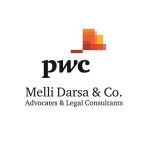Environmental, social and governance (ESG) factors are a set of non-financial performance indicators that assess a company’s risks and relationship to the environment and society. Investors rely on sustainability reporting to assess the materiality of ESG risks to inform their investment decisions. Concurrently, businesses rely on sustainability metrics to identify industry specific ESG risks and the extent of exposure that can have material implications on the company.
ESG is often viewed through one of two lenses: (i) an impediment to business as usual and the need for additional regulatory compliance; and (ii) a framework that, if optimised, can support investors and businesses to create long-term value while advancing national and international efforts to achieve sustainability agendas, such as the United Nations’ 2030 Agenda for Sustainable Development.
In order to support companies to view ESG through the second lens, four key factors are often emphasised. If these are ignored, they can expose the company to significant ESG-related risks and render unfavourable financial outcomes. These include:
Regulatory compliance;
Changes in consumer expectations;
A workforce that is increasingly purpose-driven; and
Investment in technology and assets.
Defining ESG and ESG value creation
From a regulatory perspective, it is fairly straightforward to convince businesses that they should comply with regulatory standards and requirements. However, the key distinction here is that ESG regulatory frameworks across developed and emerging markets remain limited and quite nascent for the most part, leaving the door open for voluntary action based on goodwill, where global supply chains do not restrict market players to comply with industry standards. Consequently, compliance with regulation not only avoids financial penalties, but depending on national laws and regulations, it can lead to tax credits or subsidy eligibility.
With the emergence of social media and access to information, including false information, over the past two decades, businesses have become more transparent and communicative with their consumer base than ever before. Companies now understand the power and importance of social media, as well as the financial impact of negative publicity.
Today, consumers are more aware and socially conscious of their consumption and the products that they consume than in any time in history. Companies have therefore taken drastic measures to be transparent and communicative about their products and operations to the extent that does not compromise confidentiality or competitive advantage.
As the deadline for the UN 2030 Agenda becomes closer, and whether the international community’s collective efforts can lead to the achievement of the Sustainable Development Goals (SDGs), it is fair to say that a company in the 2020s can fail to maximise revenue generation and lose market share if it fails to respond appropriately to its socially-conscious consumers.
On the other hand, while the workforce has historically been a market mechanism for transactions between employees as the providers of skills and expertise, and employers who demand those skills and expertise, today’s workforce has become more purpose driven than witnessed before. This is primarily due to Millennials, and more recently Generation Z, entering the workforce.
The principal-agent problem, while still applicable, now has an additional dimension, which is that purpose-driven agents (employees who care about their impact) will exceed their contractual obligations, because they believe in the essence of their work and the company’s impact on the environment and society. This in turn will result in higher productivity levels across the company. However, this requires the company to create a purpose driven environment to attract such talent.
Investments in green technologies and green assets present a real opportunity for asset optimisation in the long run. Green technologies and assets such as renewables, wastewater treatment systems, eco-friendly vehicles, sustainable waste management and recycling primarily revolve around the circular economy and greenhouse gas reduction. The adoption of such technologies and assets, though cost-intensive to implement, can significantly increase energy savings and reduce air, soil, and water pollution, and can lead to subsidy eligibility in some contexts.
There are certainly more factors and considerations that make up the overall ESG discussion; and across markets, different factors apply differently with varying levels of urgency. However, the combination of these four factors can have a significant impact on a company’s ability to create long-term value and its financial performance. They can also inform investors, shareholders, and the government about the general direction of a company, which can have material impact.
As governments work to encourage businesses to support their overall efforts around the SDGs and other sustainability targets (e.g. Paris Climate goals), the key challenge for national governments is to introduce legislation that can effectively incentivise or mandate investors and businesses to incorporate ESG into their decisions, operations and activities.
More importantly, regulators must take concrete measures to ensure that there are effective and reliable enforcement mechanisms that can regulate investors and businesses. However, an obstacle that has impeded regulatory progress around this issue is the fact that there has been a lack of cohesive force at an international level to standardise ESG frameworks and sustainability reporting standards.
International collaboration on standardisation
To begin with, it is important to highlight that there is currently a wide range of complex and fragmented voluntary frameworks and standards that are in use. These focus on shaping the ‘principles’ related to key aspects of the overall ESG discussion (e.g. Principles of Responsible Investment, UN Global Compact), ‘industry-specific standardisation or certification’ (e.g. International Organization for Standardization – ISO, Roundtable on Sustainable Palm Oil – RSPO), or ‘reporting’ to guide and support company disclosures (e.g. Global Reporting Initiative – GRI, Sustainability Accounting Standard Board – SASB, Task Force on Climate-related Financial Disclosures – TCFD).
While there is recognition of the important roles that these frameworks and standards have played to advance sustainability action and compliance in the private sector, a lack of a consolidated framework and a concerted effort by the international community suggests that there is a need to accelerate the convergence of sustainability reporting standards and frameworks to ensure comparability across industries and markets.
The recent G7 Summit in the UK in June 2021 made significant strides towards standardisation and comparability. The G7 finance ministers and central bank governors made an announcement that highlighted the importance of greening the global financial system in order to mobilise trillions of dollars in private sector finance and reduce the financing gap in tackling climate challenges. Additionally, they highlighted the need for mandatory common metrics upon which investors can rely. The communiqué highlights this significant milestone in securing international commitment for a common framework.
“We support moving towards mandatory climate-related financial disclosures that provide consistent and decision-useful information for market participants and that are based on the Task Force on Climate-related Financial Disclosures (TCFD) framework, in line with domestic regulatory frameworks. Investors need high quality, comparable and reliable information on climate risks. We therefore agree on the need for a baseline global reporting standard for sustainability, which jurisdictions can further supplement.”
Additionally, the finance ministers welcomed the International Financial Reporting Standards (IFRS) Foundation to continue its ongoing efforts in developing global sustainability standards, also known as the Sustainability Standards Board (SSB). The IFRS Foundation has been working to reduce the level of complexity in sustainability reporting while also ensuring greater consistency. The SSB is expected to prioritise four strategic areas in developing common sustainability standards. These comprise:
Investor focus for enterprise value – focusing on material information relevant to investors and others in capital markets;
Sustainability scope, prioritising climate – due to urgency and high demand, initially focusing on climate-related reporting before expanding to other ESG areas;
Building on existing frameworks – focusing on collaboration with other standard-setters to ensure convergence among existing frameworks; and
Building blocks approach – focusing on producing a globally consistent and comparable sustainability reporting baseline while allowing flexibility for coordination on reporting requirements across jurisdictions.
The SSB is also expected to work with other standard-setters in converging sustainability frameworks and standards where appropriate. Just to highlight a few others: the IFRS Foundation is currently overseeing TCFD’s implementation monitoring report including climate-related scenario analyses. Additionally, the IFRS Foundation has been invited to collaborate with GRI, SASB, Climate Disclosures Standards Board (CDSB), and the Climate Disclosure Project (CDP) to establish the building blocks of a set of metrics on global non-financial reporting. Furthermore, the International Integrated Reporting Council (IIRC) and SASB have formed the Value Reporting Foundation to enable organisations to report more comprehensively on value creation.
Another ongoing effort around convergence was initiated by the World Economic Forum’s (WEF) International Business Council (IBC), which issued the Compact for Responsive and Responsible Leadership at the 2017 Annual Meeting in Davos. This document was signed by more than 140 CEOs, which indicates that corporate strategies and targets will best serve society if they are aligned with society’s long-term goals, more specifically the SDGs.
Given the series of concrete programmes and actions that are underway, it is very likely that by COP26 (November 2021), there will be continued observation of critical international commitments and agreements being announced, which may transform sustainability reporting standards and frameworks.
Frankly, this is inevitable as more and more governments are likely to join the G7 Member States in committing their national agendas and prioritising resources and efforts towards developing integrated and coherent ESG-related policies and regulations. It is imperative that these policies are designed to address the needs of their local markets and contexts while allowing common reporting standards and frameworks to ensure comparability across industries and markets for investors to make more informed decisions.
Now, what can the Indonesian government do while some of these pieces are still coming together?
Recommendations for strengthening the Indonesian regulatory framework
As a UN member state, the Government of Indonesia (GOI) has ratified the UN 2030 Agenda through several regulatory actions, most prominently, Presidential Regulation No. 59/ 2017 on the implementation of the SDGs in Indonesia. This regulation specifies GOI coordination and action needed for the achievement of the SDGs. The regulation prioritises efforts to enhance economic welfare of communities, advance social inclusion, environmental action, and good governance to improve the quality of life for future generations.
Furthermore, the GOI has been quite active, not just on the SDGs, but also around sustainable finance and sustainability reporting. The Indonesian Financial Services Authority (OJK) has led efforts around sustainable finance and green bonds framework. OJK has recently published Phase II (2021-2025) of their Sustainable Finance Roadmap, which highlights the importance of identifying and incorporating ESG risks in order to mitigate and manage them effectively and increase business resilience and sustainability.
In 2017, OJK introduced Regulation No. 60/POJK.04/2017 on the green bond framework that specifies the requirements and issuance process for green bonds in Indonesia. Using this regulation, Indonesia acting through the Ministry of Finance (MOF) has since issued the sovereign green sukuk (four issuances between 2018-2021) amounting to $3.99 billion, where the proceeds were allocated to five thematic areas, comprising renewable energy, energy efficiency, disaster risk reduction, waste to energy, and sustainable transport.
Also in 2017, OJK introduced Regulation No. 51/POJK.03/2017 on the application of sustainable finance to financial services institutions, issuers, and publicly listed companies, where the regulation mandates these stakeholders to begin publishing sustainability reports.
Moreover, OJK issued technical guidelines for the banking sector relating to (i) sustainable finance principles; (ii) sustainable finance programme priorities; (iii) strategic steps in implementing sustainable finance programmes; (iv) outlining the content of the sustainable finance action plan; (v) outlining the content of sustainability reporting standards; (vi) outlining the criteria and categories of sustainable business activities; and (vii) determining the allocation and use of ESG funds to support the implementation of sustainable finance. Additionally, OJK is drafting regulation to align sustainability reporting standards for publicly listed companies with international standards.
Notwithstanding this excellent start, more can be done in terms of regulating the quality of these sustainability reports, as well as their comparability with other standards across industries or markets. A standardised reporting framework can therefore significantly improve the quality of reporting that OJK demands. More corporations should aim to receive an ESG rating from international rating agencies such as Refinitiv, MSCI, Sustainalytics, and others.
In line with this gap, the following measures can be proposed, which GOI can consider in tackling broader ESG policies and capability gaps, and prepare for the adoption of global sustainability reporting standards:
Establish an ESG technical task force
It would be critical if GOI can establish a multi-stakeholder taskforce that would be chaired by GOI stakeholders (e.g. MOF, OJK, Ministry of Investment, Bank Indonesia), and include investors (foreign and domestic representation), OJK registered professionals and licensed parties (lawyers, accountants, underwriters, brokers, investment managers), standard-setters, the Indonesian Stock Exchange (IDX), select companies, and international donor agencies (bilateral and multilateral agencies).
The purpose of this taskforce would be to strengthen GOI’s ESG capability and align ESG policies and regulatory frameworks with international best practice.
Build capacity of the ESG technical task force
As a second step, it would be important to collaborate with international donor agencies and international standard-setters to introduce capacity development programmes for taskforce members who may benefit from such training particularly those who can serve as ESG catalysts in the market place such as the OJK registered professional and licensed parties.
Considering some of the regulatory best practices coming out of the EU, the US, and Japan, this collaboration may consider their respective donor agencies as a starting point for establishing partnerships.
Develop an ESG policy roadmap
In line with international best practice and with technical assistance from donor agencies, prepare GOI’s ESG policy roadmap, and as a subset of that develop a sustainability reporting roadmap, which can supplement and strengthen 51/POJK.03/2017.
Click here to read all the chapters from IFLR’s ESG Asia Report 2021

Melli Darsa
Legal Senior Partner
Melli Darsa & Co, PwC Indonesia
T: +62 21 5099 2901
Melli Darsa is the founder and senior partner of Melli Darsa & Co, a law firm that has been a member of PwC’s global network since 2017. Her legal career has spanned over 30 years, and she currently serves as the leader of PwC Indonesia’s legal line of service.
Melli has a specialisation in investment law issues, as well as M&A transactions, financing and securities. Her industrial focus since 1998 has been primarily on the banking and financial industry, shifting to state-owned clients over the last 15 years. Her work is generally transactional, but her expertise is often used in complex legal studies and in identifying and mitigating legal risks, as well as ensuring regulatory compliance. Since joining PwC, she has increasingly worked on the transformation and restructuring of government institutions and state-owned enterprises
Melli is a graduate of the University of Indonesia Law School and has completed a master’s degree at Harvard Law School. She is qualified to practice both in Indonesia and New York.

Maurice Shawndefar
ESG Advisor
PwC Indonesia
T: +62 21 5099 2901
Maurice Shawndefar is a public policy and ESG specialist with experience in private and non-profit sectors.
Maurice specialises in international development with a focus on sustainable development policies. He has 10 years of professional experience with more than five years as a sustainable development policy specialist in Indonesia. He advises governments, international development agencies, and businesses on sustainability policies and strategies to incorporate into national priorities and programmes or corporate strategies. He has managed projects relating to the SDGs, sustainable finance, and sustainable consumption.
Maurice is a graduate of the University of California, San Diego and the Hertie School of Governance. Prior to joining PwC, he was a sustainable urban development specialist at the United Nations Development Programme in Indonesia.



